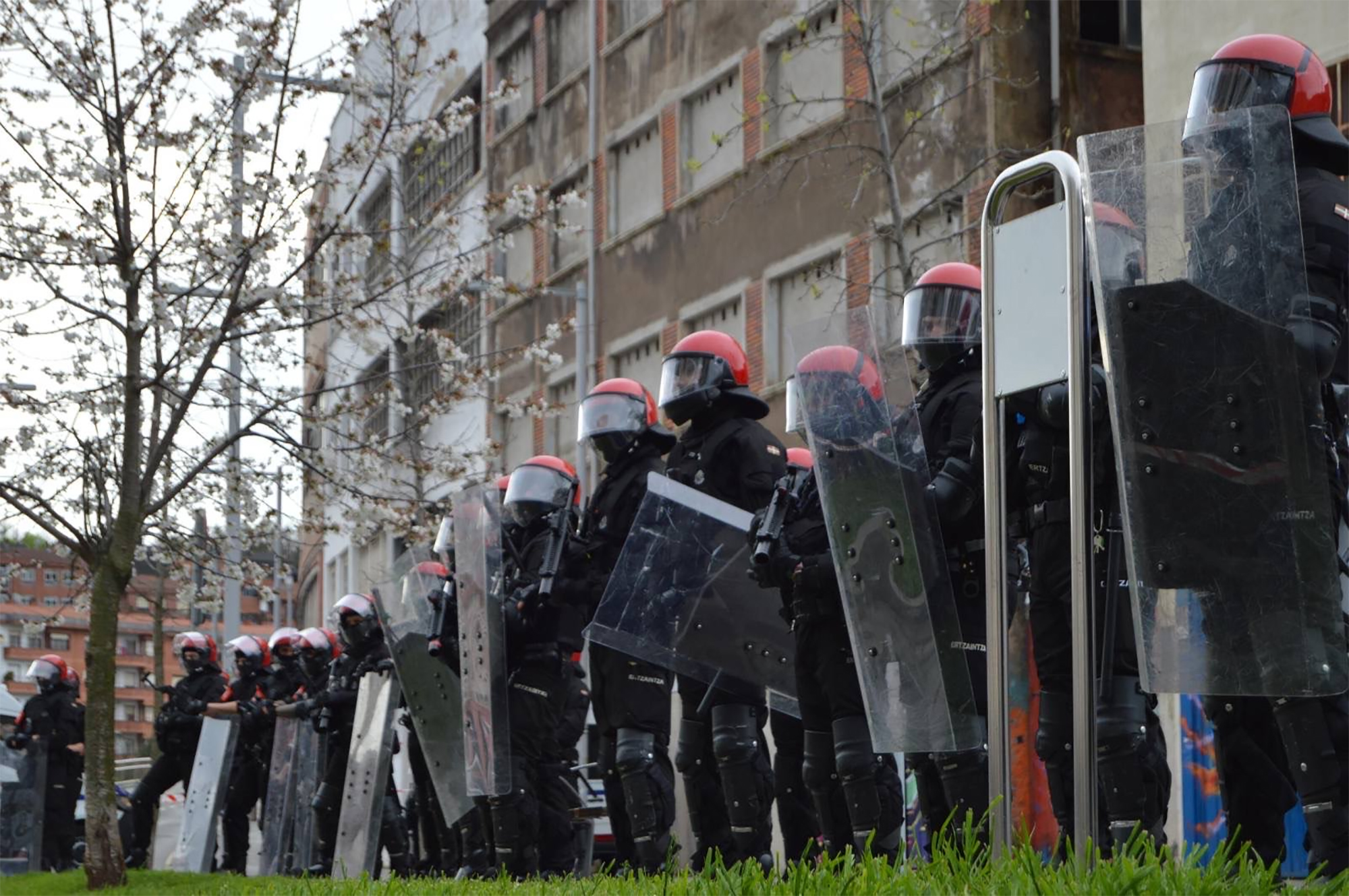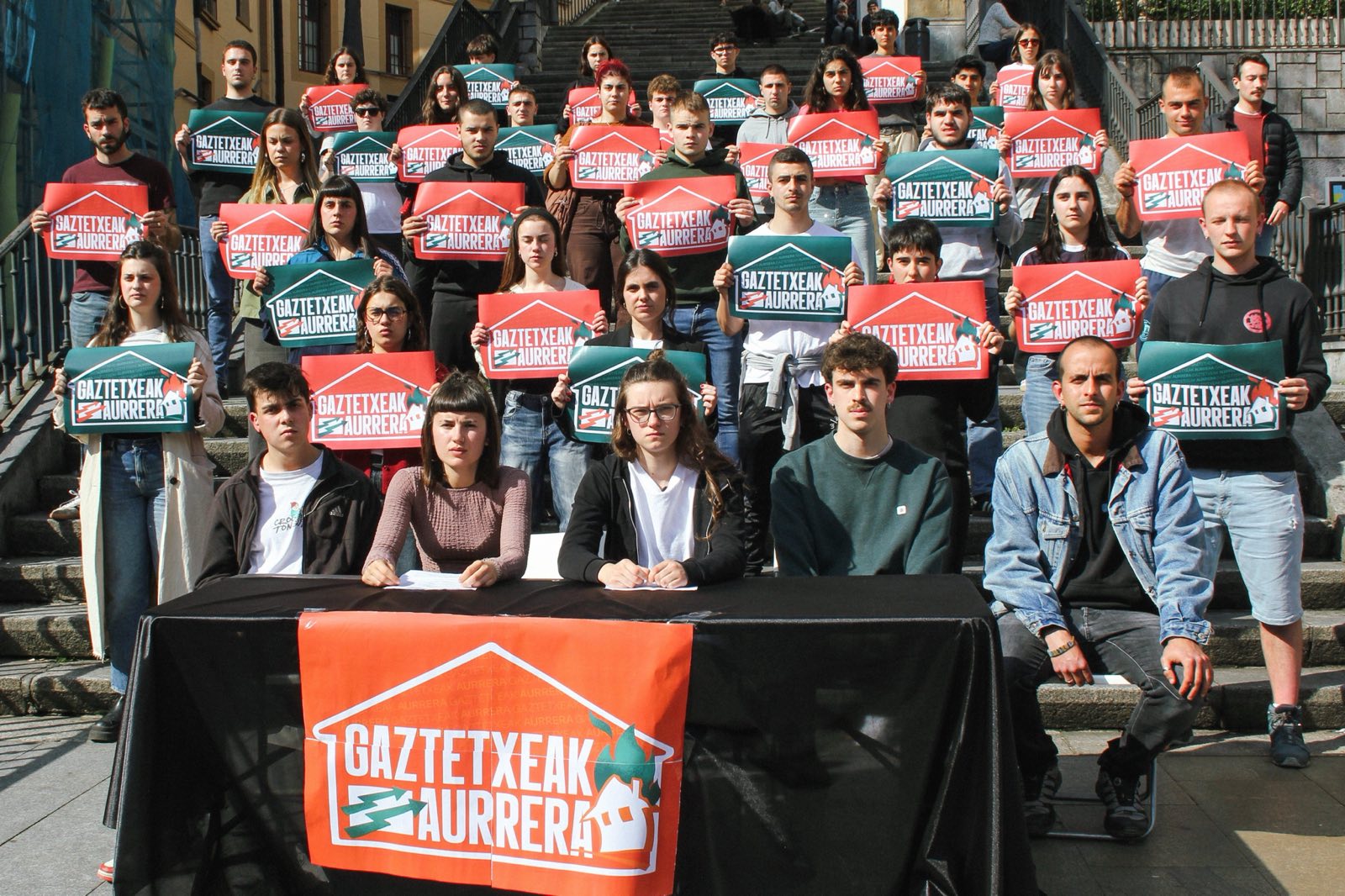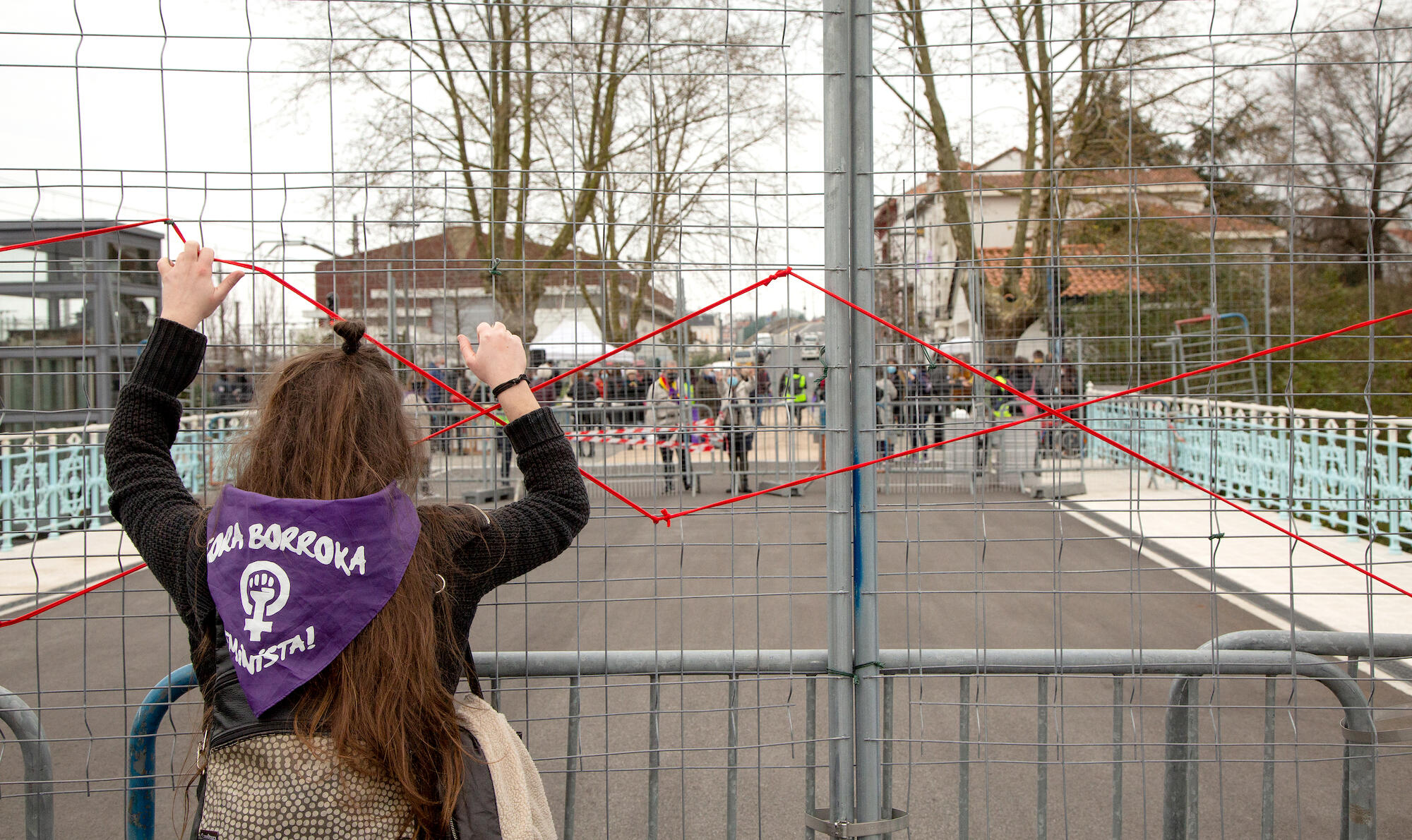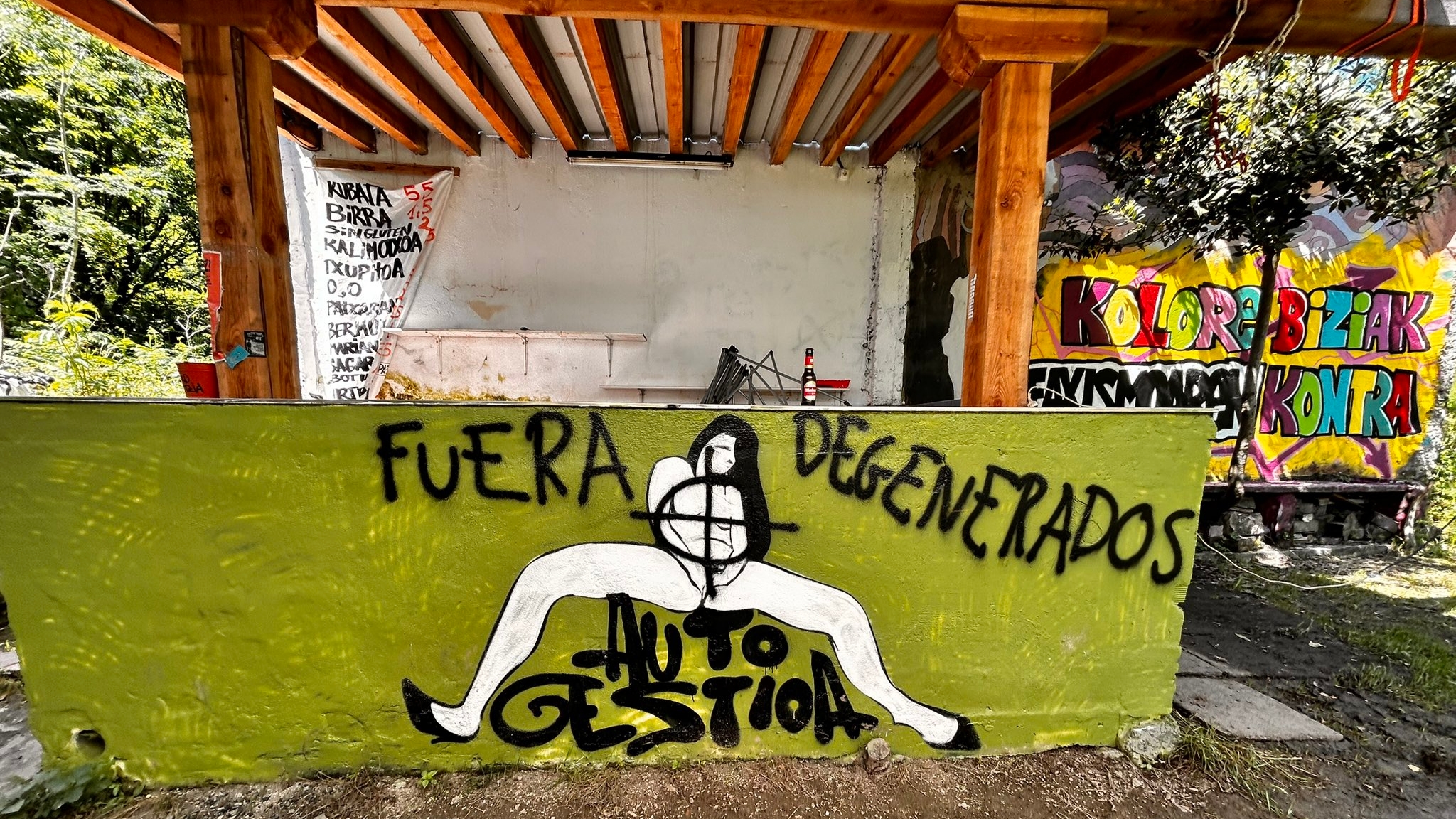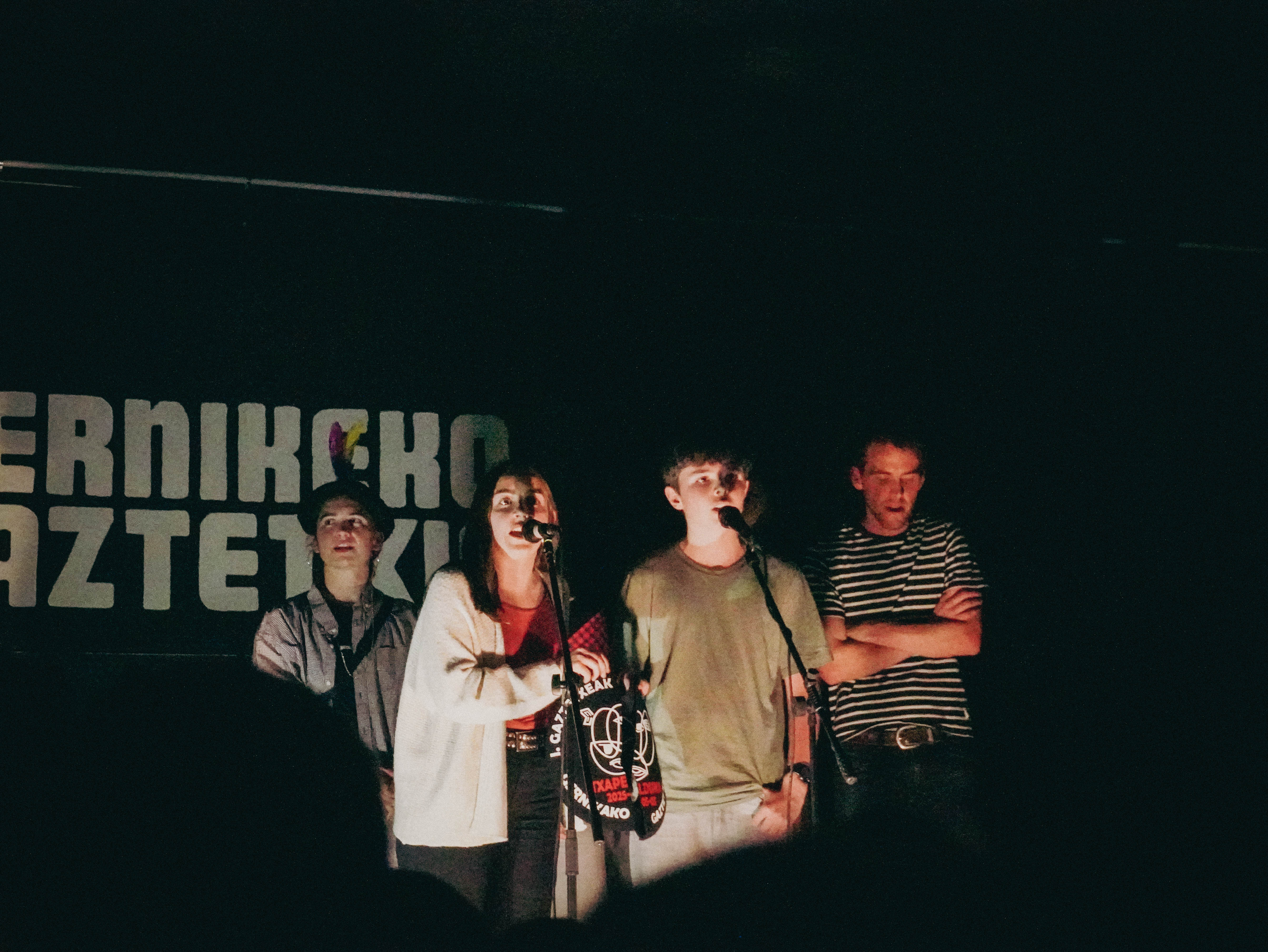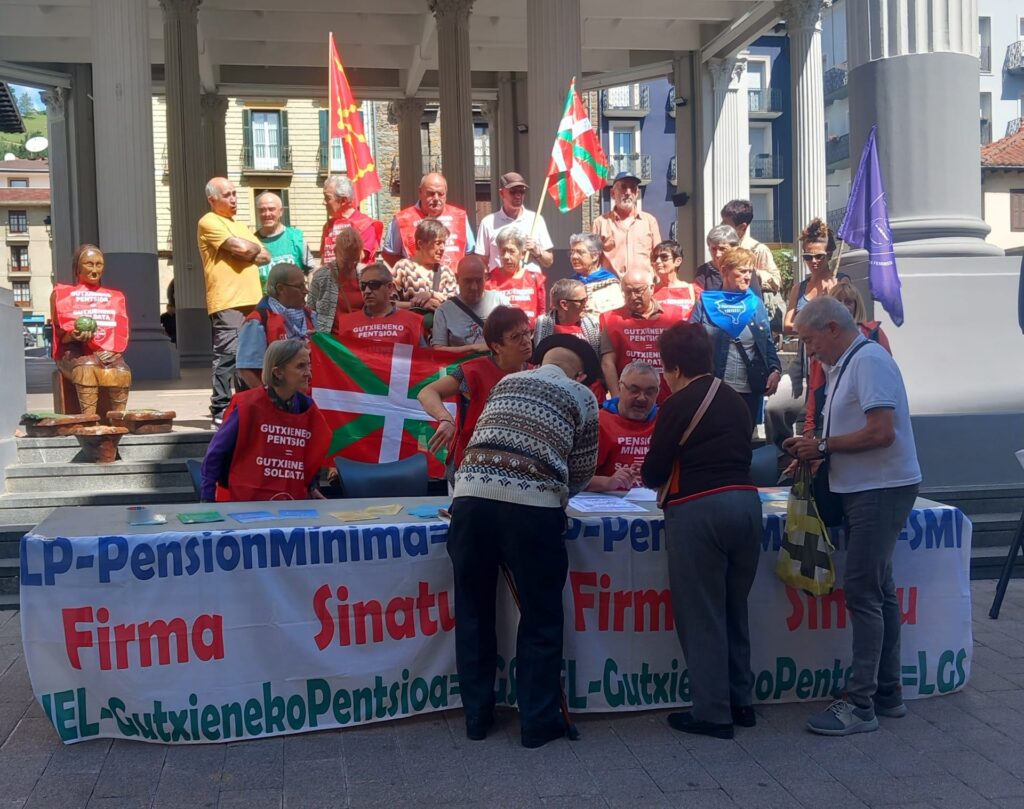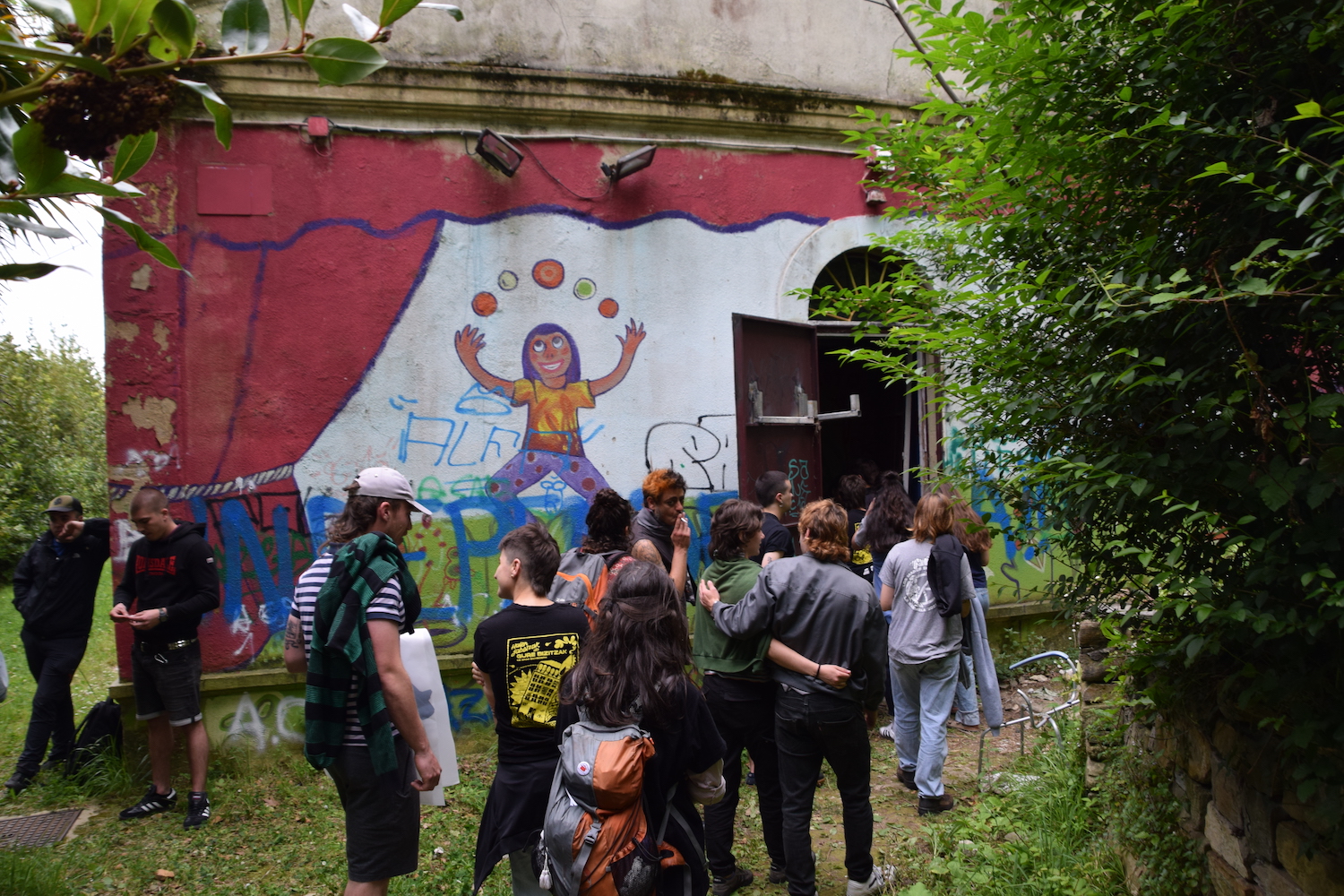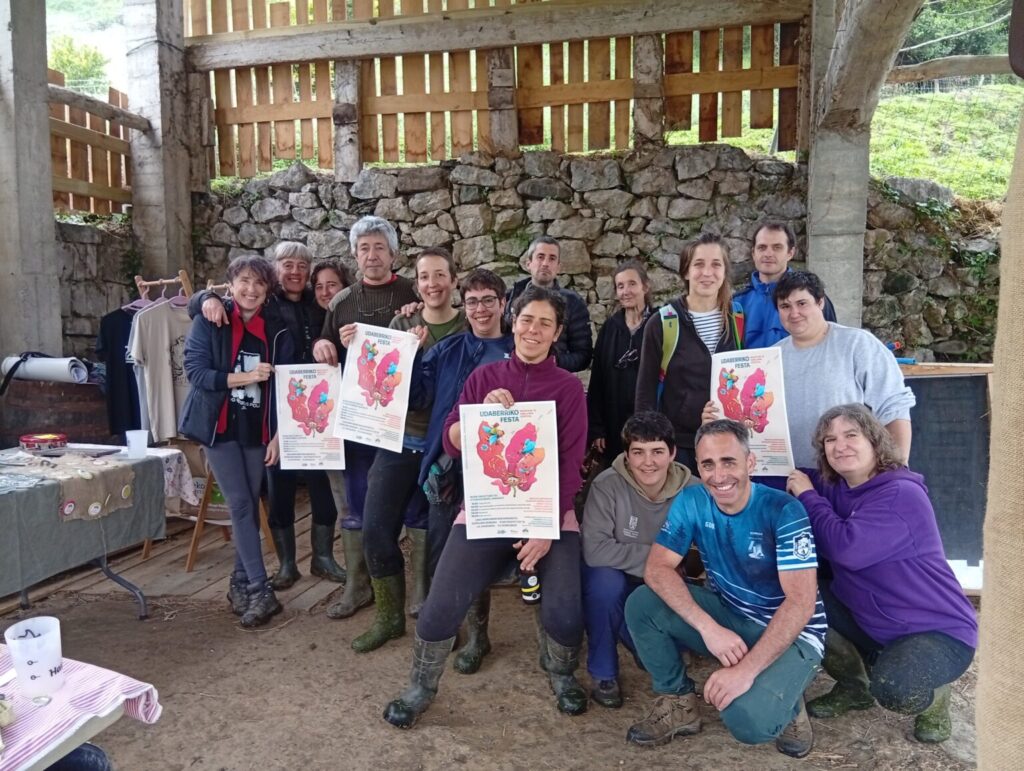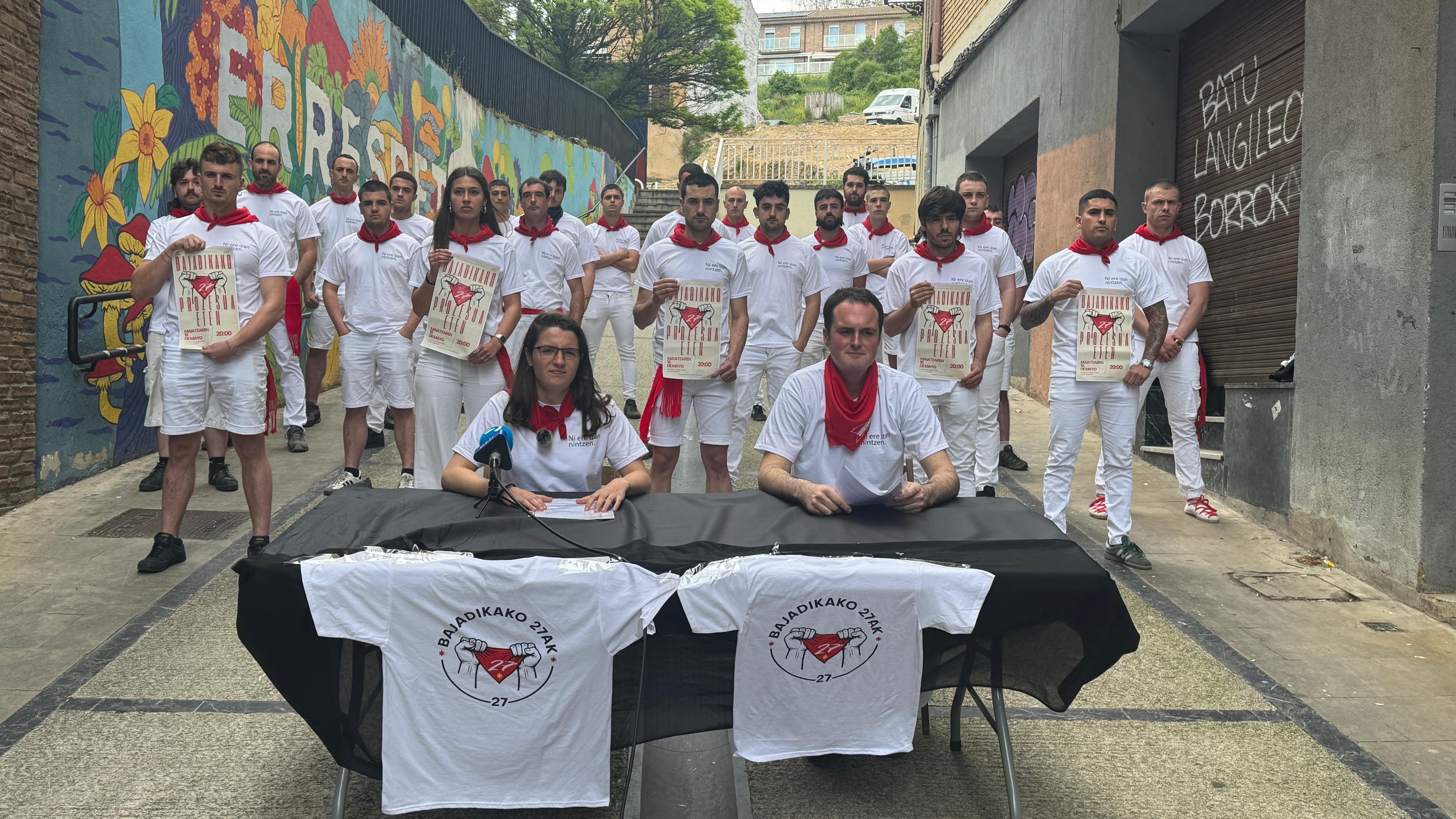"Where's the leg of the popular movement?" It is a concern that many people are heard from the Basque culture"
- On 17 and 18 June, the Miramar Palace in Donostia-San Sebastián held the days "building communities from local initiatives" within the UPV Summer Courses. For one year, three university research groups have analysed different initiatives and areas of popular movements in Gipuzkoa, in collaboration with a programme sponsored by the Provincial Council of Gipuzkoa and the UPV. The results of this work, which has been carried out by ETB, have been presented in Donostia-San Sebastián. In the first of the sessions, the professors of the UPV/EHU Mari Luz Esteban and María Ruiz Torrado analyzed the general conclusions of the research. We talked to them.

They have submitted a study these days: Weaving communities from citizen initiatives.
Mari Luz Esteban Award: Part Hartuz is a study conducted between NOR and the Feminist Anthropology Research Group (AFIT). It is therefore a job for many people. We have always had the responsibility of grass-roots movements and social transformation. In this context of crisis and transformation of movements, we have focused on initiatives that generate alliances and knit communities.
What and how have they investigated?
María Ruiz Torrado: At the level of Gipuzkoa we have worked in Arrasate, Hernani, Errenteria and Donostia. We have taken four lines into account. One is feminism and gender equality: we have analyzed the processes of women’s houses and other feminist initiatives. On the other hand, some agents of the Basque world of these peoples, as well as the place occupied by the Basque people in other initiatives. For example, in Arroces of the World. Migration and anti-racist agents are another line. The fourth area is that of Socioecology. In it we have researched initiatives and agents from all over Gipuzkoa, with very different experiences: Abaraska, Life is the biggest, like the movement against the TAV or the incinerator. Finally, we have approached other actors who do not fall into these areas but which we found interesting: Pensioners like EHGAM. The interviews have been the main tool, we have also met with technicians or political representatives, but mainly with militants of the movements. We have also made a direct observation of some initiatives. And finally, the networks of relationships, through a questionnaire: with whom each one of them creates, how, what they value and with what others.
You have identified some keys in the general conclusions. In the militant practices, three layers have been differentiated: the most committed nucleus; the one that deals with this nucleus in a more agile way; and those who are willing to participate in punctual initiatives but do not assume responsibilities. You have received from the movements that this last layer is very large. Is it a new phenomenon?
M.L. Esteban: At least feminism does. In the 1980s, great mobilizations were carried out around abortion, but many of them were on the move. Today, many of the people who go to the mobilizations are nowhere else. Associations in general have slimmed down.
M. Ruiz: The interviewees commented that there are now fewer people in groups and more in specific times. That the classic model of the Assembly does not work today. In general, it is related to the change of militancy models. We have been told that the level of commitment has fallen, that people are not prepared to hold a weekly or monthly meeting, or that they are not following after having taken part in a concrete dynamic.
M.L. Esteban: Participation is also more timely in the definition or design of projects. We used to make plans all year round, shorter timescale plans are now being made with more concrete objectives. It's also taking a step from fraternity to self. Participation from one's own life is more valued. Before it was more, “there is a meeting, we have to paste posters.” This has changed substantially.
-From fraternity he is also taking a step towards me. Participation from one's own life is more valued. Before it was more, "There's a meeting, you've got to stick posters."
What positive and negative aspects do movements perceive at this step from fragility to the self?
M. Ruiz: Many suggested it as something negative, related to the blurring of commitment. But others turned him around. For example, in the setting of the Errenteria Women's House, one of them highlighted that it is what allows a space to participate sociopolitically without being in this classic model. The position of many others was as follows: “It has happened and it is, society and militancies have changed and we will have to adapt to those new developments.”
M.L. Esteban: There are opportunities and problems or challenges. How are decisions made? Does the motor team make decisions for everyone? How is leadership practiced? We are in a moment of change, we have not yet taken a distance and we are not very aware of what is happening. We have to adapt.
They have also highlighted the multiplication of professionals and liberated in the realm of popular construction and popular movements. What new challenges are there?
M.L. Esteban: We're talking about different kinds of professionals. On the one hand, the technicians who are in the institutions, such as the technicians of Euskera or of equality. There's also dynamizers, it's very fashionable to call a company to dynamite a project. It's not a permanent technician, it's a technician linked to the project. Of course, that makes the process easier. The risk is that initiatives and tutelary movements will emerge. In the case of a studied women's house, for example, equality technicians have had an important weight. We asked the members of Herrigintza, “How is the project going?”: “Still, the technicians have not called us.” There is a risk of demobilization, of channeling decision-making spaces to the institution. The institution has an enormous capacity to neutralise your opinion. Although they are left-wing institutions and the people in them are super majos. The more autonomous the movement, the more powerful it is, the better. That is obvious. Even in cases of shrinkage.
They have also talked to the technicians in these posts. Do they share responsibility for these risks?
M. Ruiz: Some of the interviewees saw it. For example, your word has more weight in the meeting. Or they've been measuring what they're saying, trying to avoid conditioning more than they want.
M.L. Esteban: Especially when flirting happens, that balance is very difficult. There are rhythms: those of the movements and those of the institution are different and it may happen that the institutions and technicians make decisions. The professionalization itself -- you're employed to do projects, so you do them. However, the applicability of these projects... many are not carried out. As with the protocols, there are the protocols of Christ that remain in nothing. There is a risk of changing the idea of politics, of what it is to change the world.
Is there not a process of privatization and commodification of the knowledge of popular movements? For example, when a company is set up to lead a participation process: some of the knowledge applied are those that come from popular movements; many of those engaged in it are members of popular movements.
M.L. Esteban: Yes, that's directly like that. I think it's often better to do less, but to be really participative. If there is no real participation, let us not. But that's not how you think. Of course, if you're a technician, you'll push it. It may not be convenient. We need to reflect on this.
M. Ruiz: There are very different experiences. In a women's home, an external company was asked to guide a participatory process to determine the type of home that women wanted. Women were very happy because it allowed everybody to participate and do it on the same level.
Is there no risk that citizenship and popular movements will internalize the feeling of “we don’t know”? A process of disempowerment because it should be led by an expert who is unfamiliar with movements? Although the process is methodologically satisfactory.
M. Ruiz: By process. For example, in this case, it didn’t start from the fact that women wanted to do something, and then the organization comes ...
M.L. Esteban: This is another point: The origin of the initiatives. If it emerges from the institution it does not have to say no, but all the alerts must be activated. When it emerges from the movement, the movement has already made its own. The Women's House of Pamplona/Iruña has been created from the institution. Feminists say “almost what they do to us there.”
M. Ruiz: Yes, the experience is different depending on that.
"If a project emerges from the institution it does not have to say no, but all the alerts have to be put in place. When it emerges from the movement, the movement has already made its own".
It is suggested that in the attitude towards institutions there is a continuum, rather than dichotomous positions. At one end there can be flirting experiences, such as the houses of women or the Basque projects, the intermediate positions in the initiatives on the migrated people, and at the opposite end there would be some socio-ecological movements.
M.L. Esteban: The Ecoalternatives team has done a great job. It has gathered all the experiences, not just the concrete experiences of concrete peoples like the rest. This enriches the research, because it is observed that within each area there is also this continuum, different attitudes. One against the institutions, the other trying to agree something. But yes, the clearer positions against the institutions have appeared in this area. In Euskera and feminism not so much. But we have to reflect on why, because we often find ourselves in the politically correct position. Each position has its problems.
In feminism, in addition to experiences of collaboration and framing, there are also proposals and practices that collide. In Euskalgintza, is the paw of the popular movement more missing?
M.L. Esteban: It is a concern that many people in the Basque culture are listening to. That was the question they had in January when they held the meeting: How to renew the movement. But here's the question, is there movement? I do not dare to answer him. But it is true that it has become so professionalized, that so many companies have been created, that they are very interesting, but where the movement is. They are also concerned about the lack of young people in the Basque world.
M. Ruiz: In many spaces there are people from the Basque culture next to the institution. The movements come together with the Basque technician, or the feminists with the equality technicians. These collaborations are more present than in socio-ecology.

You have come to the conclusion that feminism has a prominent presence in all areas.
M.L. Esteban: Sometimes there is a doubt that almost us, from our feminist glasses, swell that reality (they laugh), but it looks like it does. There are many feminists, there are also feminists in mixed groups, and feminist agendas are also on the table.
M. Ruiz: It is noticeable that feminism is strong at the moment. She's also at risk of having a fashion, but she does.
You start from a hypothesis: The partnership and the dynamics of collaboration have increased in this period of transformation. Have you confirmed the hypothesis?
M.L. Esteban: We would say yes. Experiences in the line of the Bilbao Karmele, platforms for organizing initiatives in any town, stable groups between different agents. In the past, more coordination took place. There is a trend. Our research team is also the result of that key partnership.
"The partnership and the dynamics of collaboration have been increasing: Experiences along the lines of the Bilbao Karmele, platforms for organizing initiatives in any town, stable groups between different agents".
You have stressed the importance of multiple positions in that building of bridges.
M. Ruiz: We've seen that there are several people participating in different movements and spaces. Being located in different places, these groups come together in some way, bring themes back and forth, create bridges and networks. The issue of people everywhere is a subject that has often come out. And not only in many movements, but also in movements and institutional relationships, for example.
M.L. Esteban: We haven't studied very well what happens to people who are Basque or equality techniques, and then I don't know what movement they're in. How is this harmonised? I would argue that roles are different when you're a technician or when you're on the move.
M. Ruiz: And there are different evaluations. A feminist militant is a technique of equality and comes very well to collaborate, but has its risks for autonomy or decision-making.
Are they not times of enmity and division, together with alliances and alliances?
M.L. Esteban: There are some conflicts, but in general it does not seem to me. There's that tension between the class perspective and feminism. I think the main element, not the only one, to explain that is the reaction to feminism. And then those on the Abertzale Left, linked to the phase of change. But the environment is quieter, right?
Cooperation has been in working conditions, conflict and tension. You highlight feminism as the movement that has most contributed to coping with conflicts.
M.L. Esteban: I do not know how to resolve conflicts, but at least I do accept them and look at them in the face. And then we're going to get it right. In the conflict detection experience, I would say yes, without idealizing. We've also been forced to a level, because we're used to bringing together very different women, and that's where conflicts come by themselves.
What they have now presented is part of the research, which is part of a larger project.
M. Ruiz: The first phase of a project that runs until 2021 is the one we have carried out in 2018. The next one is that it extends to all of Euskal Herria. We also want to take Navarre and Iparralde, or at least some border initiatives. We have already started. For example, with some young people.
"We have done the first phase of a project in 2018 that runs until 2021. The next thing is that it spreads across the Basque Country."
Do you intend to return to them what you have received from popular movements?
MR: The intention of the conference was to share these conclusions and gather their opinion with the popular movements. That is perhaps a pity of participation, at least in the workshop on the second day we have received more. At the tables, in addition to the members of the research, members of the agents have also participated.
M.L. Esteban: Summer courses are not the right place for this, for different reasons. But we've also done presentations in the municipalities where we've been, and we're going to do more in this field.
The relationship between academia, popular movements and specific peoples gives rise to many debates. Have fruitful and horizontal relations been established in the process?
M.L. Esteban: Others would have to say that. Many of us are militants, we're not just academics. In many places they met people from research groups, we have approached to present the project and explain it. I would say that we have taken great care of the process. Hierarchies always emerge, we know that we will take the academic performance out of you, but we've tried, we've also been part of the processes that we've investigated. However, there are many academies and many activisms, there are possibilities to build horizontal relationships.
M. Ruiz: I was afraid some would take it, but we have had no problem leaving college.
Errepikatu nirekin: Sara Millerey. Ez dezagun ahaztu bere izena. Transfeminizidioaren biktima da Millerey: gorrototzaile transmisogino batek torturatu zuen, besoak moztu zizkion eta bizirik bota zuen ibaiertz batera. Bi orduko agoniaren ondoren hil zen.
Errazagoa da J.K... [+]








